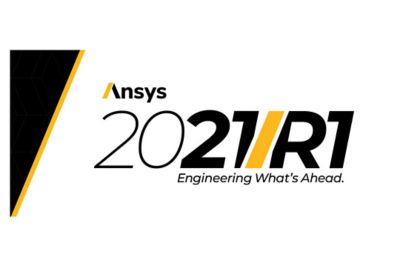-
United States -
United Kingdom -
India -
France -
Deutschland -
Italia -
日本 -
대한민국 -
中国 -
台灣
-
Ansys si impegna a fare in modo che gli studenti di oggi abbiano successo, fornendogli il software gratuito di simulazione ingegneristica.
-
Ansys si impegna a fare in modo che gli studenti di oggi abbiano successo, fornendogli il software gratuito di simulazione ingegneristica.
-
Ansys si impegna a fare in modo che gli studenti di oggi abbiano successo, fornendogli il software gratuito di simulazione ingegneristica.
-
Contattaci -
Opportunità di lavoro -
Studenti e Accademici -
Per Stati Uniti e Canada
+1 844.462.6797
ANSYS BLOG
January 26, 2021
Solving Larger, More Complex Systems Using Ansys 2021 R1
This is certainly happening in the fields of 5G communications, autonomous vehicles, the electrification of cars and aircraft, and the internet of things, among others. Engineering tools must expand their capabilities to keep up with these trends.
Ansys 2021 R1, our latest software release, gives you the power and capabilities to handle this complexity challenge. By keeping in close contact with all industries, we are able to anticipate their needs and incorporate changes into our simulation software so you have the tools you need when you need them.
In Ansys 2021 R1, this means we have enhanced the power and functionality of the Ansys Cloud so you can use high-performance computing (HPC) on-demand to increase the number of cores available to solve larger challenges in record time. For example, the introduction of Ansys HFSS Mesh Fusion simulation technology in this release makes it easy to simulate entire electromagnetic systems at once, like the electromagnetic transmissions of an entire room, with the help of Ansys Cloud.
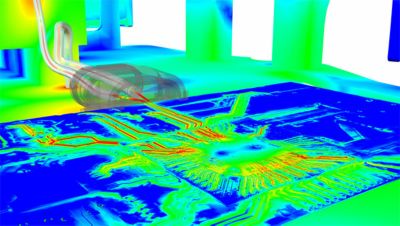
Ansys 2021 R1 delivers groundbreaking enhancements in the electronics suite
Likewise, the new Ansys Speos optical simulation software release accelerates simulation time via Ansys Cloud, enabling you to get results up to 60 times faster. You can also combine your optical simulations with other Ansys solutions, such as Ansys Mechanical, Ansys Fluent and Ansys optiSLang, for streamlined and comprehensive simulation results.
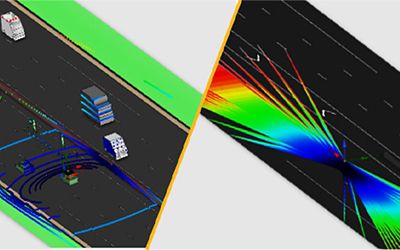
Ansys Speos accelerates innovation with improved workflows,
innovative features and new capabilities
In fact, interoperability is a hallmark of the new release, which addresses system simulation challenges inherent in today’s more complex products.
For instance, optiSLang 2021 R1 design optimization software includes improvements in process integration, like supporting scheduler submissions in Ansys Electronics Desktop and supporting Ansys HPC licensing. Easy web app building and publishing via Ansys Minerva allows enterprise-wide application of process integration and design optimization (PIDO) simulation workflows.
Of course, we have also enhanced the capabilities of all our simulation solutions — structural, fluids, optical, semiconductors, embedded software and more — in Ansys 2021 R1. We’ll mention a few highlights at the end of this blog and do a deeper dive into the new features of these solvers in future blogs.
Ansys Cloud: On-Demand HPC Tailored for Ansys Simulations
Ansys Cloud increases simulation throughput by removing the hardware barrier. Even if you are working from home, you can access the computing power of thousands of cores from within your Ansys solvers. Enhanced features of the Ansys Cloud in Ansys 2021 R1 include:
- Easy access from within Ansys solvers. If you are using Mechanical, Fluent, Electronics Desktop, Speos or Ansys LS-DYNA, you can easily access HPC in the cloud directly — without any additional setup or involving your information technology team. Simply select a preconfigured hardware configuration, then submit your jobs directly to the cloud. You won’t have to wait in HPC cluster queues or reduce your model size to fit desktop constraints.
- Ansys Cloud’s In-Browser Interactive Session. This delivers workstation-class performance to any computer with an internet connection. Access complete installations of Mechanical, Fluent, Electronics Desktop or Ansys Discovery via a remote desktop connection to harness additional computing power for pre- and post-processing activities and eliminate the need to transfer data to and from the cloud. Ansys Cloud enables a full end-to-end, cloud-based workflow.
- Job monitoring. You can easily monitor the progress of your simulation from within the desktop installation of Mechanical and Fluent or from a web-based cloud portal. Job monitoring tools provide full access to the solver transcript, a graphical view of convergence parameters and real-time access to debug information when help is needed. You can also view a summary of your simulation jobs via a web-based cloud portal, which can be accessed from your desktop or mobile device. Using the cloud portal, you can track total consumption of Ansys Elastic Currencies (AECs) and Ansys Hardware Currencies (AHCs), and even share your simulation jobs with your peers and Ansys support.
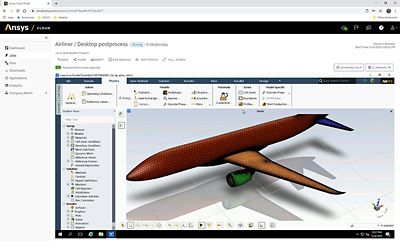
Ansys 2021 R1 platform solutions enhance simulation process and data
management (SPDM), process integration and design optimization
(PIDO) and cloud offerings
Other Enhancements in Ansys 2021 R1
Here are just a few of the release’s many other highlights:
- An expanded sensor suite for autonomous vehicles (AVs), including a physics-based real-time radar sensor that can be used in closed-loop simulation validation to ensure AV safety. Also, new scanning and rotating lidar models increase AV simulation accuracy.
- Advances in embedded systems and software solutions to increase communications among team members and reduce embedded software certification costs, with improved modeling and code generation flexibility for AUTOSAR software components for automotive and support for the FACE 3.0 Technical Standard for military avionics.
- A new battery designer tool to optimize materials selection for creating next-gen batteries, with a new electric vehicle (EV) powertrain library to speed system simulations of electrified components.
- New features and workflows in Ansys Mechanical fill the gap between injection molding and structural simulation for the short fiber reinforced composites increasingly used in automotive components and consumer goods.
- An automated fluid-solid thermal analysis in Discovery to easily predict fluid and solid thermal behaviors for the design and evaluation of electronics cooling and heat management devices.
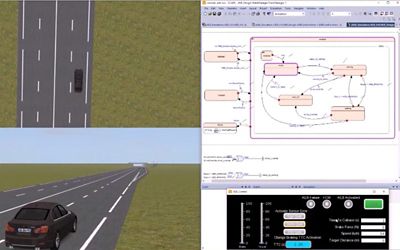
In Ansys 2021 R1, Ansys embedded software solutions enable even more
development optimization, increase communication among team
members and reduce embedded software project certification costs
For specific updates on each of Ansys’ product suites, please visit:
- Systems
- Optical
- Embedded Software
- Multiphysics
- Structures
- 3D Design
- Electronics
- Fluids
- Materials
- Semiconductors
- Platforms
Ansys 2021 R1 is part of our never-ending commitment to continuously improve simulation solutions to meet your ever-increasing challenge to design better products faster. Watch for more blogs that expand upon the new capabilities we’ve added to Ansys 2021 R1.











